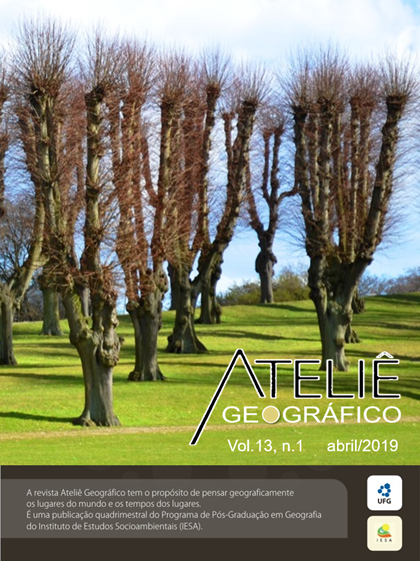The collective titling of quilombola lands and the conflicts for territorial rights in the state of Rio Grande do Norte, Brazil
DOI:
https://doi.org/10.5216/ag.v13i1.52604Abstract
The collective titling of the lands which belong to the remnant communities of quilombos has been configured as one of the policies that represent the territorialization of the State power and the exercise of power by quilombolas. The purpose of this article is to discuss the collective titling of quilombola remnant lands, highlighting the impasses, the processes development and the territorial conflicts in Rio Grande do Norte. The period of analysis starts in 2003, when the Decree 4.887 was promulgated to regulate the right and title of quilombola lands, up to the current year. After bibliographic research, secondary data were collected from federal agencies and semi-structured interviews with quilombola leaders and the Incra anthropologist were performed. The results pointed to factors that delay the progress of the processes, such as bureaucracy and the lack of resources to hire technical support to map the areas and conflicts that have arisen both among the members of the communities themselves, as well as these members and external subjects to the communities who claim lots of land in some territories.
Keywords: Collective titling. Quilombola lands. Rio Grande do Norte.
Downloads
Downloads
Published
How to Cite
Issue
Section
License
Autores que publicam nesta revista concordam com os seguintes termos:- Autores mantém os direitos autorais e concedem à revista o direito de primeira publicação, com o trabalho simultaneamente licenciado sob a Licença Creative Commons Attribution que permite o compartilhamento do trabalho com reconhecimento da autoria e publicação inicial nesta revista.
- Os autores não serão remunerados pela publicação de trabalhos na Revista Ateliê Geográfico. Além disso, os conteúdos publicados são de inteira e exclusiva responsabilidade de seus autores, ainda que reservado aos editores o direito de proceder a ajustes textuais e de adequação às normas da publicação.
- Autores têm permissão e são estimulados a divulgar seu trabalho online (ex.: em repositórios institucionais ou na sua página pessoal), já que isso pode gerar alterações produtivas, bem como aumentar o impacto e a citação do trabalho publicado (Veja O Efeito do Acesso Livre).


